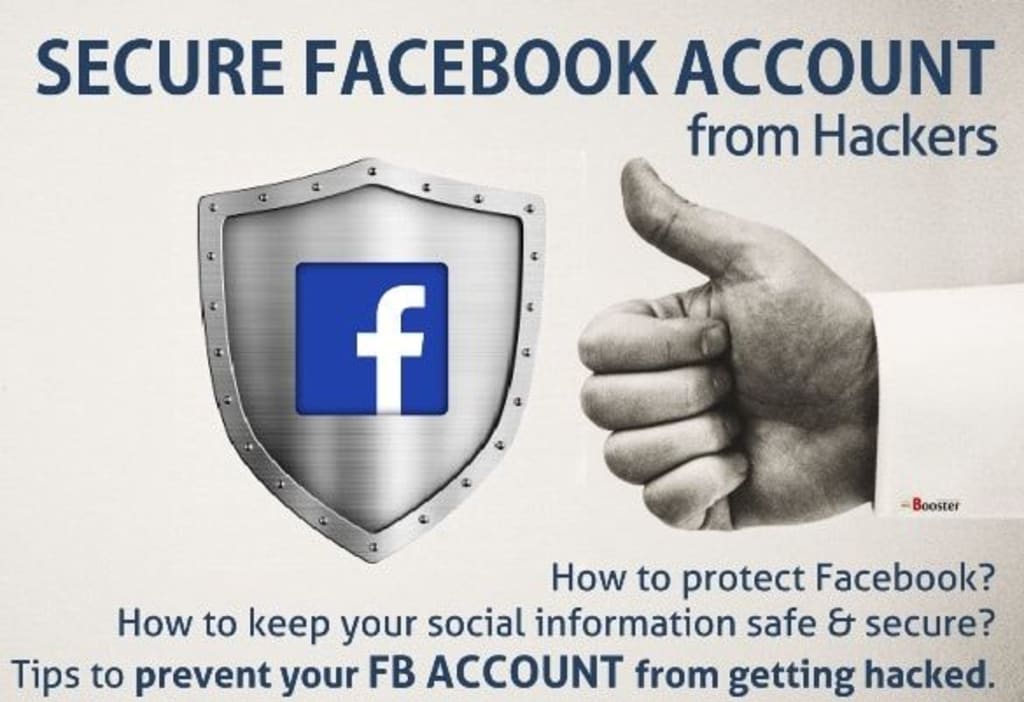How to Secure Your Facebook Account from Hackers?
This article writes about Facebook accounts safe from unaccepted tragedy

Have you ever wondered how secure your Facebook account is from hackers? In this article, we'll explore the different ways that you can protect yourself from malicious actors on the internet and ensure that your personal information remains safe. We'll also look at some of the best practices for secure account management so that you can enjoy using Facebook without worrying about security.
Introduction: What is Facebook and Why Should You Care About Security?
Facebook is the world’s largest social media platform with over 2.4 billion monthly active users. It is a powerful tool for connecting with friends and family, sharing news and experiences, and building online communities. However, as with any online service, there are risks associated with using Facebook. Hackers can gain access to your account and use it to post spam or malicious content, send friend requests to people you don’t know, or even access your personal information.
That’s why it’s important to take steps to secure your Facebook account and protect yourself from potential hackers. In this article, we’ll share some tips on how to do just that.
Step 1: Create a Strong Password
Your password is the first line of defense against hackers. That’s why it’s important to create a strong password that’s difficult to guess.
Here are some tips for creating a strong password:
- Use a mix of uppercase and lowercase letters, numbers, and symbols.
- Make your password at least 8 characters long.
- Avoid using easily guessed words like “password” or your birthdate.
- Don’t use the same password for all of your online accounts.
Step 2: Use Two-factor Authentication
If you're serious about keeping your Facebook account secure from hackers, you should enable two-factor authentication. Two-factor authentication is an extra layer of security that requires you to enter a code in addition to your password when logging in.
You can enable two-factor authentication in the Security and Login section of Facebook's settings. Once you've enabled it, you'll need to add a phone number to your account. Facebook will then send you a code via text message whenever you try to log in from a new device.
While two-factor authentication is not foolproof, it's a much stronger deterrent than just using a password. Hackers are less likely to target accounts that have two-factor authentication enabled, and if they do, they'll have a much harder time accessing your account.
Step 3: Protect your Privacy Settings
It's important to protect your privacy settings on Facebook to keep your account secure from hackers. Here are some steps to take to ensure your privacy settings are as secure as possible:
1. Go to the Privacy Settings page in your account settings.
2. Under the "Who can see my stuff?" section, change the default setting for "Who can see my future posts?" to "Friends". This will ensure that only your friends can see any new posts you make on Facebook.
3. Under the "How do I stop someone from bothering me?" section, select the option to block someone if they send you a message that you don't want. This will prevent anyone who tries to contact you through Facebook from being able to see your profile or send you messages.
4. In the "Ads, Apps, and Websites" section of the privacy settings page, disable the option for third-party apps and websites to access your information. This will prevent any applications or websites from being able to collect data about you without your knowledge or consent.
5. Finally, review the security settings in your account settings and enable all of the security features that are available, such as two-factor authentication and login notifications. These features will help protect your account even if your password is compromised by a hacker.
Step 4: Don’t Click on Suspicious Links
In this day and age, we are constantly bombarded with links to click on. Whether it’s in an email, on a website, or even in a text message, it’s hard to know which links are safe to click on and which ones aren’t. When it comes to your Facebook account, you should be extra careful about the links you click on. If a link looks suspicious, don’t click on it!
There are a few things you can do to determine if a link is safe to click on or not. First, take a look at the URL of the link. If it looks suspicious or contains characters that you don’t recognize, don’t click on it. Second, hover over the link without clicking on it. This will allow you to see where the link is going to take you before you click on it. If the URL looks suspicious or takes you to an unexpected website, don’t click on the link!
If you do accidentally click on a suspicious link, don’t panic! Immediately close out of the tab or window that opened up and run a virus scan on your computer. This will help ensure that your computer hasn’t been infected with any malicious software.
By following these simple tips, you can help keep your Facebook account safe from hackers and other cybercriminals.
Step 5: Monitor your Activity Logs
It's important to monitor your activity logs regularly to ensure that your account remains secure. To do this, simply go to your Facebook settings and click on the 'Activity Log' tab. From here, you'll be able to see all of the recent activity on your account, including any login attempts (both successful and unsuccessful), posts made, and changes to your profile or privacy settings. If you notice anything suspicious, be sure to report it to Facebook immediately so that they can investigate and take action if necessary.
Conclusion
Taking the necessary steps to secure your Facebook account from hackers can be a daunting task, but it is worth the effort. By changing your password regularly, enabling two-factor authentication, and adjusting your privacy settings, you can ensure that only authorized people have access to your account. Additionally, make sure that you remain vigilant and watch out for any suspicious activity on your account. Taking these measures will help protect your Facebook information so you don't have to worry about becoming a victim of cybercrime.
About the Creator
Enjoyed the story? Support the Creator.
Subscribe for free to receive all their stories in your feed. You could also pledge your support or give them a one-off tip, letting them know you appreciate their work.





Comments
There are no comments for this story
Be the first to respond and start the conversation.